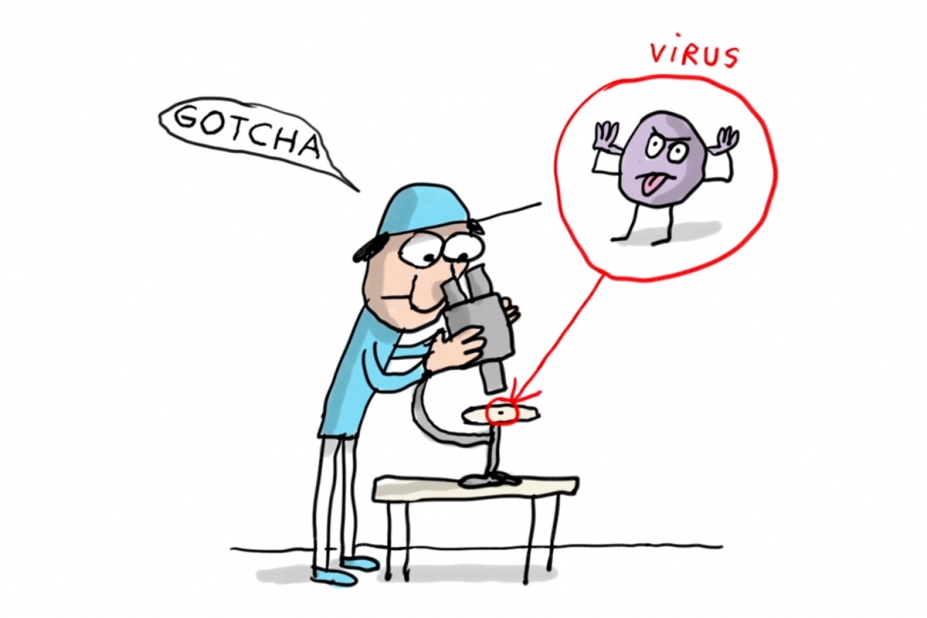It’s a microscopic parasite, invisible to the naked eye.
It can’t survive long in the open air, but invades living beings. Some viruses prefer humans, others plants, and others animals.
Once inside its host, the intruder causes a disease; sometimes just a common cold, sometimes more serious such as AIDS or Ebola.
How do viruses make us sick?
Each virus has its zone of preference: the skin, the mouth, the nose…
There, it enters a cell and forces it to create copies of itself.
Soon, millions of the same virus come out of the cell and start infecting neighboring cells.
The infection spreads and upsets the way the body works.
Viruses also try to colonize other hosts. It may be by expelling droplets when we sneeze or by sticking to objects that we touch.





 Retour
Retour